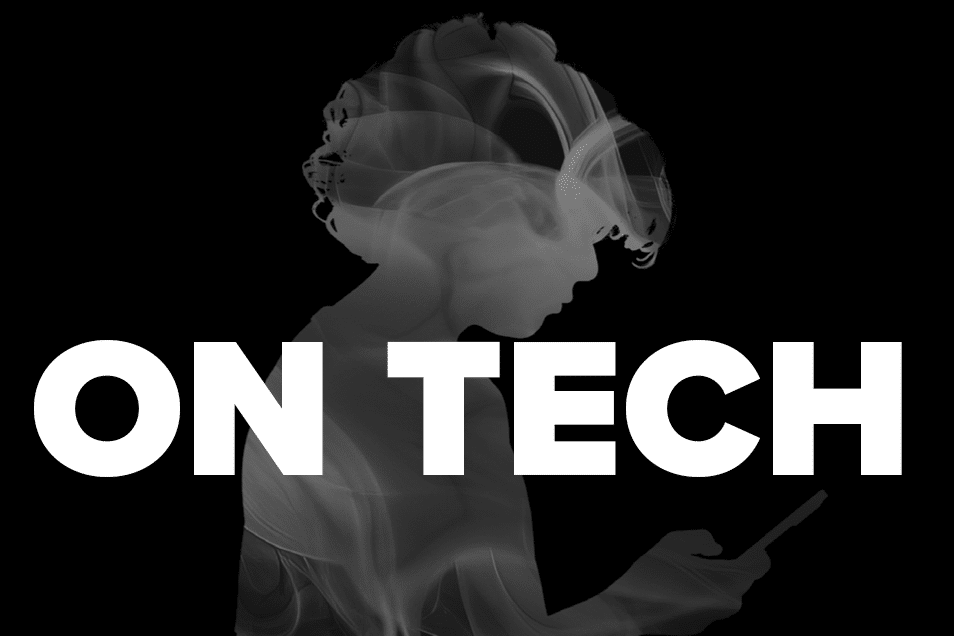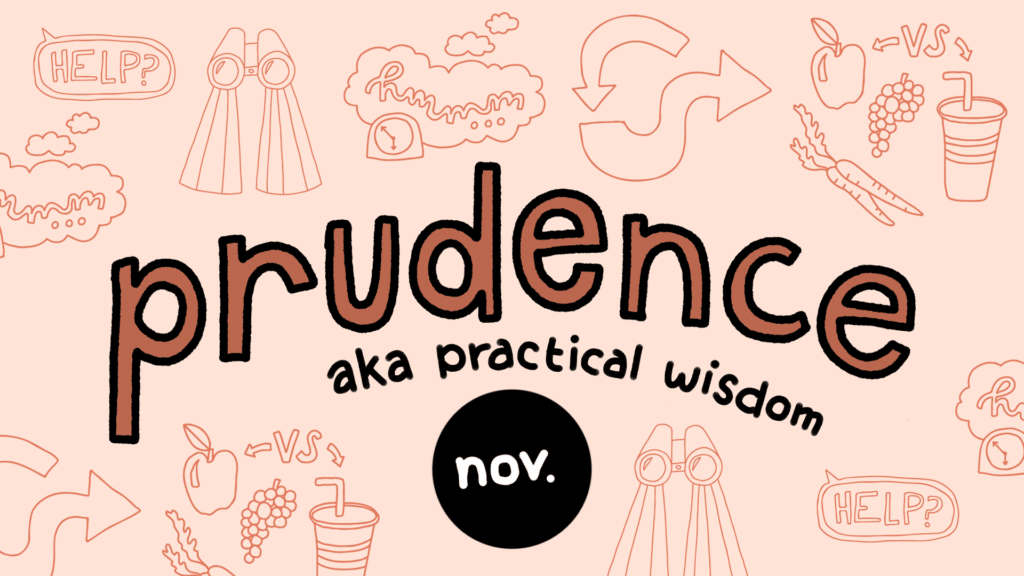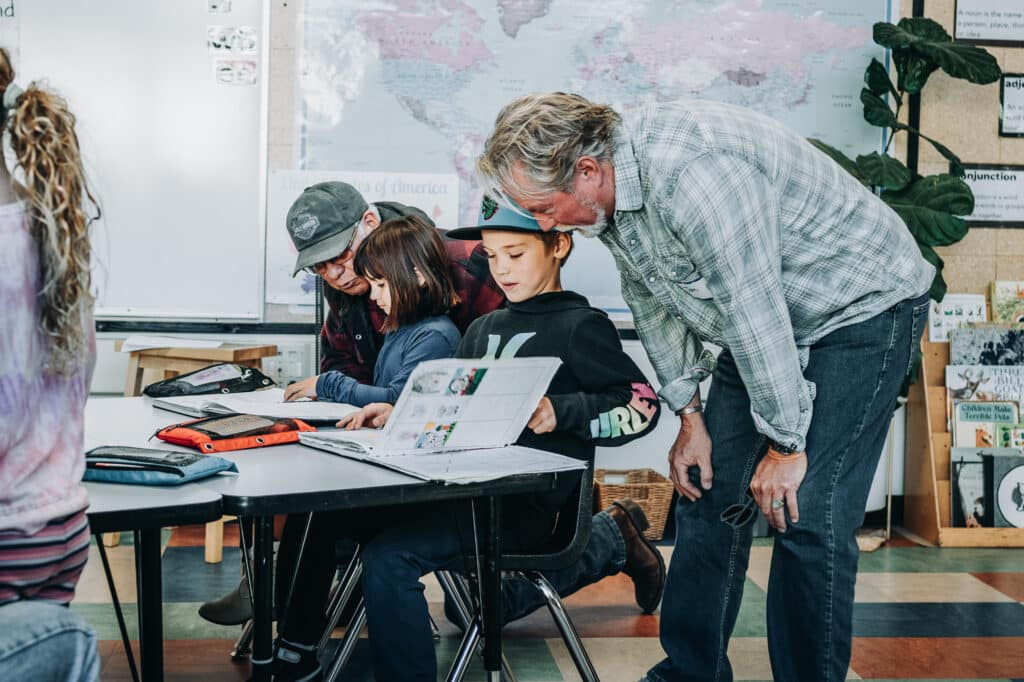
Today we have more to share in our high school series:

Whatever path our students choose, we want them well-prepared. Our program is designed to give students what they need to be successful in college, but we do not believe high school is just about getting into college. High school is life now. We strive to create a learning environment that nurtures love of learning and enables students to engage in their studies in more meaningful ways. Read on from several of our teachers about what makes their class classical and unique.
SCIENCE – Sonja Bair
Why, in 1667, did the Netherlands use military power to compel England into giving them the small South Pacific atoll of Run in exchange for what would become Manhattan? How did a violent outbreak of cholera in 1854 in a small part of London create the modern city as we know it? Why did over-plowing of the Roman countryside lead to the creation of medieval serfdom? Here at SLOCA High School, science is so much more than memorizing facts and vocabulary. Instead, we focus on how the concepts we are learning in science interweave with the story of history and how history interweaves with science. In fact, it seems as if nearly every class period a student will start a sentence with the phrase, “Wow, this reminds me of something I learned in another class…” SLOCA High School students develop an understanding that the power and influence of science doesn't end when they walk out the science classroom's door. Our science classes include literature, Socratic discussions and of course, labs and hands-on learning. They are not just in the classroom, but out in the community and beyond – creeks, parks, and Magic Mountain are some of their learning field trips.

ALGEBRA II – Tony Taylor
At SLOCA, the emphasis in Algebra II is on helping students to understand the origin and application of key mathematical ideas. Beginning with an introduction to the mathematics of ancient Egypt, Babylon and Greece, we explore how algebra developed in Islam and India, before the explosion of mathematical ideas that took place in Europe at the end of the Renaissance, which heralded the modern age. Students come to appreciate the power that was unleashed when Descartes succeeded in combining geometry with algebra. This later paved the way for Newton to develop calculus and so change the core of Physics forever. Students learn about real and imaginary numbers, logarithmic and exponential functions, vectors and matrices, mathematical constants and conic sections, as well as enhancing their skills in algebraic manipulation and advanced problem solving. Students come to see how developments in mathematics have shaped and continue to shape our lives.
HISTORY/LITERATURE
At sloCAHS, history and literature are taught in a unique and intuitive style: they are treated as one vibrant, integrated humanities course. Rather than teaching two disconnected courses, in which students may be learning about World War II in history class but reading, say, Shakespeare in another, we use important classical and modern literature to reinforce our historical studies, and we use history to provide context for the books we are reading in literature. When we read The Great Gatsby, for example, we are concurrently studying the Lost Generation and the aftermath of World War I. When we read The Iliad, we are exploring the mindset of the Mycenaean and Archaic Greeks. Over the course of their sloCAHS career, students will cover not only all the major periods and events of world history and engage with them in a lively, discussion-based/seminar setting, they will also read and write about much of the Western literary canon, as well as discover important works of international literature. We not only focus on important novels and poetry, but also essay, philosophy, non-fiction, political and economic theory, theology, and law, providing a well-rounded, liberal arts based education rooted in a mutual respect for both our fellow human beings of the past and the experiences that connect us to them. In our classical school, history is studied from a global perspective, under the guiding principle that as a liberal art, the discipline is one that demands an ethical practice, and if studied through a responsible lens, can ultimately change how we view, and therefore interact with, our modern world.

BEYOND SLOCA
In this new, innovative course, sloCAHS students are given a glimpse beyond high school and participate in simulations, discussions, and projects that explore potential life in adulthood. This fun, pragmatic course rotates around three key themes: career, education, and life skills. Throughout the year, we involve a number of guest speakers to relate to us their experiences in career and education, we discuss topics like how to choose a college (and how to pay for it once you get there!), along with general budgeting, career management, insurance, self care, and how to build a resume, and we practice valuable interview and negotiation skills. Advanced topics include investing and business management. Beyond SLOCA is a course in which students can take the critical thinking skills, ingenuity, work ethic, and time management strategies they have developed during their time at SLOCA and apply them to practical topics.

LATIN at sloCAHS – Sarah Weinschenk
The study of classical languages is at the heart of classical education. In a unique and immediate way, reading great works of classical literature in the original language allows the student to enter into the “Great Conversation.” Even at the introductory level, the study of Latin develops the critical and analytical abilities necessary for logical thinking and rhetorical skills. At the same time, the student learns the basic structure of language which can be applied to learning a number of other languages. As the student acquires a Latin vocabulary, s/he will also be building his/her English vocabulary and deepening his/her understanding of the meanings and connotations of words.
Students continuing at SLOCAHS from our middle school enter high school with 2-4 years of Latin under their belts, depending on when they started at SLOCA. They will have the opportunity to finish the Cambridge Latin Course and then move on to a cycle of Latin Literature courses. These classes represent the fruit and reward for all their years of studying Latin grammar and vocabulary. Students will read from the works of Ovid and Horace, Vergil, and Caesar and Cicero. These works are inherently interesting and often even beautiful. They represent the finest writing in lyric poetry, epic poetry, and prose not only among Roman authors, but among all writers.
Finally, the study of Latin is inherently interdisciplinary. At all levels of Latin students learn not only the language but the culture and history of the Romans, including discussions of art, geography, mythology, religion, philosophy, politics, et al. Through this study and discussion, students gain a greater understanding of their intellectual and cultural heritage as well as their place in history and the world.
ART – Melinda Fragasso
Students in art at sloCAHS draw from the foundational concepts and rules of logic learned at earlier stages to create original works of art. The stude
nts are given different projects where they practice skills to develop their use of the basic elements of design. An emphasis is placed on self-expression and how they can convey an idea through an image, almost as if they are creating a new language to communicate with. Students are given many opportunities to practice their skills through weekly drawings in their sketchbooks and projects of varying lengths. They look at art from ancients to modern to study the thread of expression through the ages.
(click to enlarge:)











